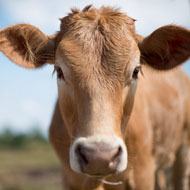Case of BSE detected in Aberdeenshire

“There are strict controls in place to protect consumers from the risk of BSE."
Scottish authorities have confirmed a case of classical bovine spongiform encephalopathy (BSE) on a farm in Aberdeenshire.
Precautionary movement restrictions have been put in place on the premises, while investigations are underway to determine the origin of the disease.
Health officials stressed that classical BSE does not pose a threat to human health.
The case was identified as part of control measures in place in Scotland. All animals over four years of age that die on farm are routinely tested for BSE.
Chief Veterinary Officer Sheila Voas said: “While it is too early to tell where the disease came from in this case, its detection is proof that our surveillance system is doing its job. We are working closely with the Animal and Plant Health Agency to answer this question, and in the meantime, I would urge any farmer who has concerns to immediately seek veterinary advice.”
Ian McWatt, director of operations in Food Standards Scotland said: “There are strict controls in place to protect consumers from the risk of BSE, including controls on animal feed, and removal of the parts of cattle most likely to carry BSE infectivity.
“Consumers can be reassured that these important protection measures remain in place and that Food Standards Scotland Official Veterinarians and Meat Hygiene Inspectors working in all abattoirs in Scotland will continue to ensure that in respect of BSE controls, the safety of consumers remains a priority.
“We will continue to work closely with Scottish Government, other agencies and industry at this time.”



 The Animal and Plant Health Agency (APHA) has updated its online reporting service for dead wild birds.
The Animal and Plant Health Agency (APHA) has updated its online reporting service for dead wild birds.